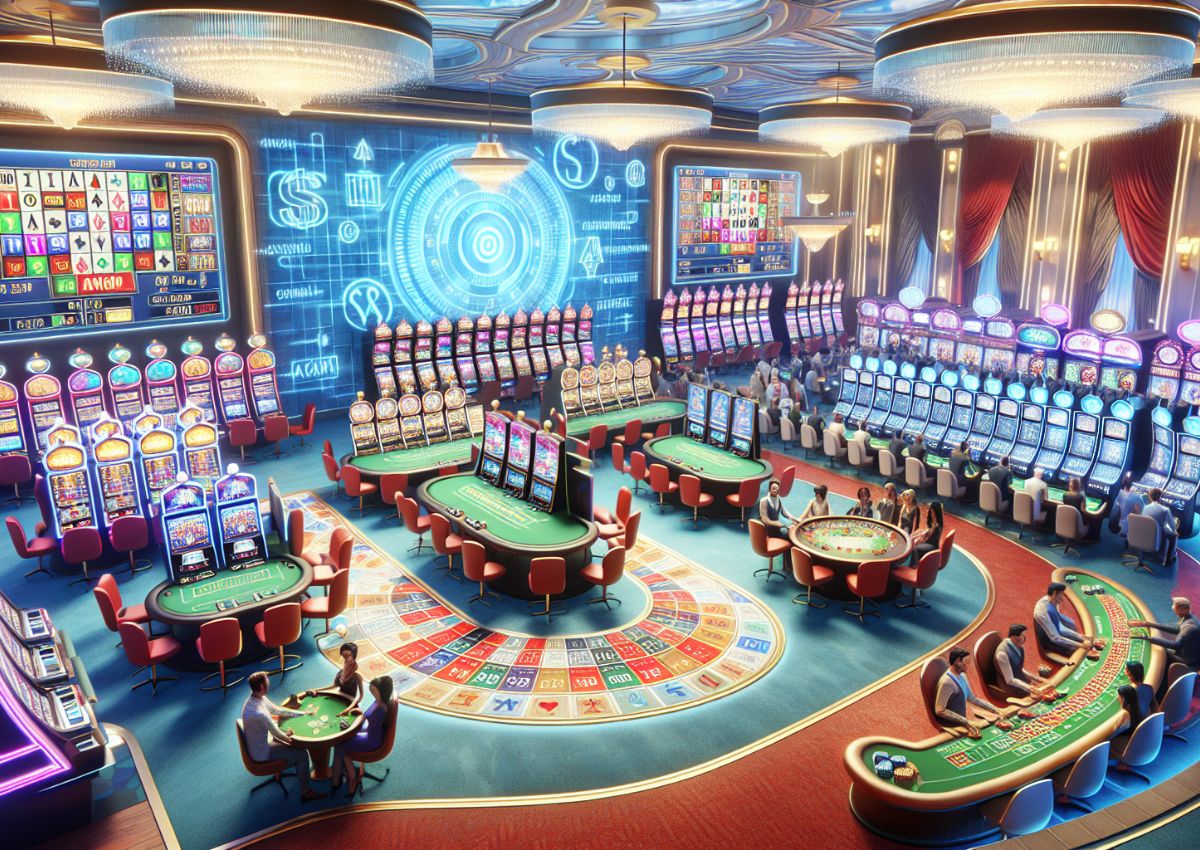
Casino experiences have captivated players for centuries, progressing from easy diversions to intricate adventures that combine chance, skill, and fun. From the historical origins of gambling in societies including Mesopotamia and Rome to the extravagant corridors of modern casinos, the journey of these games uncovers much about the human experience and our interaction with luck. As cultures have merged and technological advancements have occurred, casino games have evolved, mirroring societal changes and advancements in gameplay.
The initial iterations of gambling likely involved basic games involving dice and placing bets on the outcomes of athletic contests. Over time, these primitive activities grew into more structured games like playing card games, roulette, and the variety of one-armed bandits that populate casino floors today. Every generation brought its unique rules, aesthetics, and cultural importance. In the current era, casino games continue to evolve with the rise of digital gaming platforms, enabling players from everywhere to engage in a common experience, further blending the traditional with the digital age. masaya game
Early Origins of Casino Activities
Gambling activities have roots that stretch back to historical societies, where betting was deeply integrated in cultural traditions and cultural rituals. The earliest known forms of betting emerged in Mesopotamia around 3000 BC, featuring basic dice games made from knuckle material. These initial games laid the groundwork for more advanced betting activities, showing human beings’ instinctive urge to find fortune and entertainment through chance.
As societies developed, so did their gambling interests. In historic Chinese culture, around two thousand three hundred BC, objects were unearthed that looked like early rudimentary versions of a lottery activity. More structured instances of gambling arose in the ancient Roman Empire, where games of chance were a popular recreation, often occurring in community events. The ancient Romans developed multiple wagering games, which included dice and board games, illustrating the widespread nature of gambling across various economic classes.
With the passage of ages, these primitive games contributed to the evolution of contemporary casino activities. In the medieval period, playing card activities emerged prevalent in European culture, paving the way for the organized gaming venues we know today. The change from casual gambling to formal gambling in pubs and private houses marked a major transformation in how people interacted with activities of luck, leading to the eventual creation of casinos as specialized places for betting.
The Emergence of Current Gambling Industry
The final 1960s and 1970s marked a pivotal change in the realm of gambling games, driven by tech innovations and changes in societal views towards gambling. The introduction of computers and the internet altered the way players engaged with their preferred casino games. Online casinos emerged, enabling enthusiasts to enjoy classic table games like poker and blackjack from the comfort of their homes. This emerging digital landscape not only expanded access to gambling options but also attracted a fresh crowd who found the convenience and variety attractive.
As digital gaming gained momentum, so did developments in gaming technology. The development of sophisticated software and visual elements transformed conventional casino games into engaging experiences. Players could now connect with live live dealers through live streaming, bringing the vibe of physical casinos directly into their houses. This blending of live gaming with digital interfaces created a novel combination that enhanced the social aspect of playing, making it possible for people to connect and compete with fellow gamers around the globe.
Furthermore, the growth of mobile gaming dramatically changed the gambling environment. With the widespread use of smartphones and touch devices, gamblers can access their favorite gaming options anywhere, at any time. Mobile applications offer a vast array of games customized for mobile screens, serving the busy lifestyle of modern users. This availability has led to rising participation in gambling, driving the surge of the gaming industry. As a result, the future of the gaming industry continues to develop, adapting to technological advancements and shifting consumer preferences.
The Impact of Technology on Casino Games
The evolution of technology has significantly transformed casino games, enhancing the overall experience for players for players around the world. As the internet emerged, online casinos were created, allowing players to enjoy their favorite games from the comfort of their homes. This shift not only made casino games more accessible but also expanded the variety of games offered, as online platforms could host numerous variations of traditional games without the limitations of brick-and-mortar establishments.
The rise of mobile technology further revolutionized the casino gaming landscape. With the proliferation, players now have the ability to play casino games whenever and wherever they want. This mobility has resulted in the development of dedicated mobile applications and optimized websites that provide seamless gaming experiences. Additionally, innovations such as live dealer games have brought the authentic atmosphere of a casino into players’ living rooms, connecting between physical and online gaming.
Moreover, advancements in AI and VR are leading to the next generation of casino games. AI enhances game design and player interaction, creating tailored experiences based on user behavior and preferences. Meanwhile, virtual reality offers immersive environments where players can interact in a virtual casino environment, making the gaming experience more engaging and realistic. As technology continues to evolve, the future of casino games looks promising, filled with limitless opportunities for innovation and entertainment.